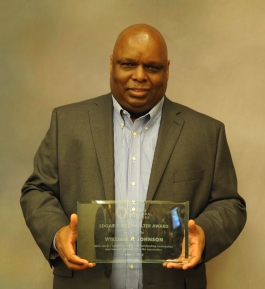The Kansas Supreme Court ruled today that the state of Kansas had not met its burden to show that recent school finance legislation brings the state’s public education system into compliance with the Kansas Constitution.
At issue was whether school funding was equitable in Kansas. The decision is considered a victory for those who brought the Gannon case, including the Kansas City, Kan., Public Schools, the Turner Public Schools and also other districts including Wichita and Leavenworth, as well as several others.
“The State has not shown that the hold harmless provision and the diluted extraordinary need provision will cure the increased disparities going forward,” the court ruled today. “The State has the burden of proof in this remedial phase and, after review of H.B. 2655 and the legislative record, we hold it has not carried its burden.
The court today gave the state the same date as it stated earlier – until June 30 of this year – to come up with a new school finance law.
“We take no issue with the stated goals of budget certainty and recognize the political realities of the legislative branch. But we must review lawmakers’ efforts for conformity with the Kansas Constitution, which demands that school districts have reasonably equal access to substantially similar educational opportunity through similar tax effort,” the court ruled. “We conclude the LOB funding mechanism under H.B. 2655 is an ‘unsuccessful attempt to equitably, i.e., fairly, allocate resources among the school districts.’”
The ruling could result in a special legislative session.
House Democratic Leader Tom Burroughs, D-33rd Dist., issued the following statement in response to the Kansas Supreme Court’s ruling in which K-12 school finance system was declared unconstitutional.
“For years, Gov. Brownback and his Republican allies in the legislature have refused to adequately fund our schools,” Burroughs said in the statement. “Today, the Supreme Court finally said enough is enough. Kansas school children deserve better. The legislature should take whatever action is necessary to keep our schools open, something Democrats have been calling for all along.”
Kansas Attorney General Derek Schmidt this evening issued the following statement in response to the latest school finance decision, Gannon v. Kansas, announced by the Kansas Supreme Court just before 5 p.m. today:
“In its latest decision, the Kansas Supreme Court concluded the Legislature has cured the constitutional infirmities in the capital outlay funding system. But the Court once again rejected the Legislature’s good faith efforts to cure what the Court identified as constitutional inequities in equalization aid for local option budgets,” Schmidt stated.
“To put the current situation in context, the State of Kansas annually spends roughly $4 billion on K-12 public schools with another $2 billion coming from federal aid and local revenues. At most, what remains at issue in this case is less than $40 million, possibly much less. This struggle between the Court and the Legislature is now narrowly focused on less than 1 percent of the overall school budget.
“I am distressed that the strain and uncertainty caused by this dispute persist even though more than 99 percent of the school-funding system for next year has been approved and accepted by both the Court and the Legislature. The Legislature specifically asked the Court to sever and disable only that part of the school funding system that the Court thinks remains out of compliance, but the Court instead chose to strike down the entire funding system,” Schmidt stated.
“All agree that Kansas schools, teachers, parents and kids need certainty that schools will open next fall, but today’s decision undermines that objective. There is no good reason a Court order about less than 1 percent of the education budget should close the schools,” Schmidt stated.
Gov. Sam Brownback issued a statement following the late-afternoon release of the Kansas Supreme Court ruling in the Gannon v. State of Kansas “education equity” case.
“It is unfortunate that the Kansas Supreme Court has put at risk the education of Kansas students and livelihood of teachers across the state by threatening to close schools on June 30,” Gov. Brownback said. “The court is engaging in political brinksmanship with this ruling, and the cost will be borne by our students.
“We will carefully consider the implications of the Court’s ruling and its disregard for the proper role of the Kansas legislature.”
The Kansas City, Kan., Public Schools statement:
“The Kansas Supreme Court has once again ruled in favor of Kansas school children. In a ruling published today in the Gannon vs. State of Kansas school funding case, the court found that Senate Substitute for HB 2655, passed in March by the Kansas Legislature, is unconstitutional. HB 2655 was passed by the legislature in response to a Supreme Court ruling in February that SB 7, more commonly known as the block grant bill, creates inequity between school districts, and is unconstitutional. The court ruled today that the legislature’s action in passing HB 2655 did not solve the inequities created by SB 7, and thus SB 7 remains unconstitutional.
“Here are some of the key points in the decision:
• The Supreme Court ruled in February that SB 7 does not cure the inequities found in the Gannon decision.
• Senate Substitute for SB 2655 does not remedy the inequities found in SB 7
• The Court has once again given the legislature until June 30, 2016, to correct these inequities.
• If the legislature does not cure the inequities in SB 7, then the entire school funding system is unconstitutional, and schools will not be able to open in August.
“The Supreme Court has once again affirmed that the Kansas constitutional requires equity in school funding across the state,” said Superintendent Cynthia Lane of the Kansas City, Kan., Public Schools. “The court has laid out a clear path to equity, and I hope the Legislature will fulfill its constitutional obligation, and act to keep schools open.”
“KCKPS was part of a group of school districts which went to court after the Kansas Legislature, in March of 2015, passed a block grant bill which cut an additional $50 million in funding for schools across Kansas, and froze funding levels for schools for the next two budget years. These reductions were on top of the cuts that school districts across the state have seen for the past seven years. The Shawnee District Court ruled SB 7 unconstitutional in June 2015, and the state appealed to the Supreme Court. In February, the court upheld the District court finding that SB 7 was inequitable, and ordered the Legislature to cure the inequity by June 30, 2016.
“District officials are still evaluating the impact of the decision, and will need to wait to see how the legislature will implement the court’s order. Nevertheless, the decision is good news for the 22,000 children in KCKPS, and the more than 450,000 students across the state.
History of school finance litigation
“KCKPS was a lead plaintiff in the original lawsuit filed in 2010 in Shawnee County District Court, which argued that the legislature was providing constitutionally inadequate levels of funding for schools in Kansas. A three-judge trial court ruled in January 2013 for the plaintiffs, finding that the cuts reduced per-pupil expenditures far below a level ‘suitable’ to educate all children under Kansas’ standards.
“To remedy the funding shortfall, the judges ordered that per-pupil expenditures be increased to $4,492 from $3,838, the level previously established as suitable. Rather than comply, the state appealed to the Kansas Supreme Court, which ruled funding levels unconstitutional. In 2015, the legislature passed and the Governor signed a block grant bill, which froze funding levels for two years, and eliminated equalization for capital outlay. It was this change that was appealed up to the Supreme Court, which divided the case into two parts, equity and adequacy. The court heard arguments on the equity portion in November, and issued its ruling today. Oral arguments in the adequacy portion of the case are not scheduled until this spring.
“This is not the first time the state has been involved in litigation for providing inadequate funding to schools. In 1999, school districts filed suit in the District Court of Shawnee County, Kansas, alleging the financing system established by the state Legislature did not meet the Kansas Constitution’s requirement to ‘make suitable provision for finance of the educational interests of the state.’ The court ruled in favor of the schools in that case, which also went to the Supreme Court. In 2005, the Supreme Court upheld the ruling.”
The decision is online at http://www.kscourts.org/Cases-and-Opinions/opinions/SupCt/2016/20160527/113267.pdf.



